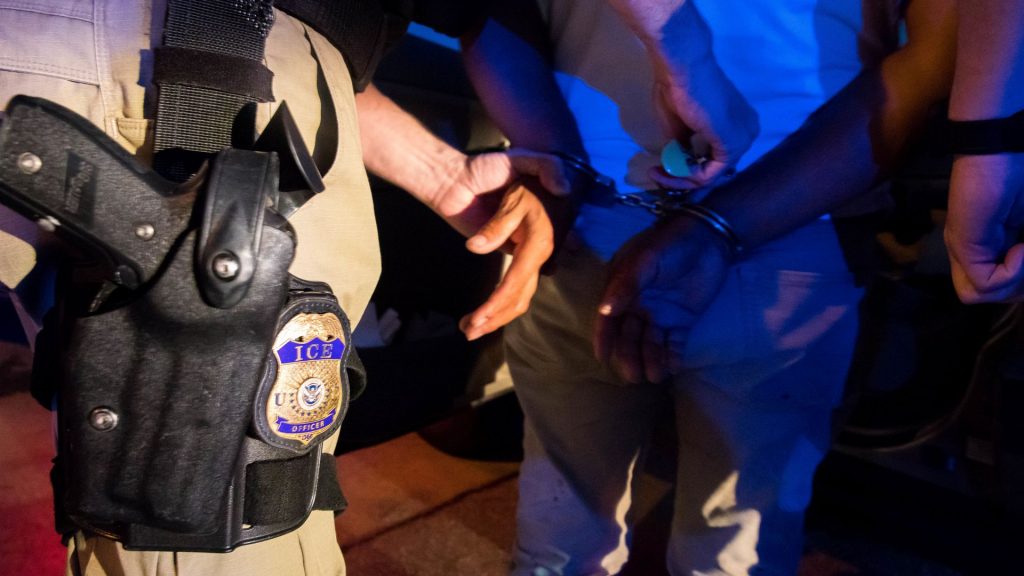Texas moves closer to mandating local immigration enforcement by sheriffs

Texas has maintained a firm stance on immigration enforcement, and a bill now on Gov. Greg Abbott’s desk reinforces that position. The measure, passed by both chambers of the state Legislature, would require most Texas sheriffs to enter into agreements with U.S. Immigration and Customs Enforcement (ICE) to help enforce federal immigration law.
Abbott will have the final say
Over the weekend, lawmakers said “yes” to SB 8 and its companion, HB 5580. Sheriffs in the 234 Texas counties that operate jails will be required to enter into agreements with ICE, regardless of the county’s population or size. Sheriffs would also be eligible to request state grant funding between $80,000 and $140,000 to support immigration enforcement, covering costs such as personnel and resources needed to assist ICE. Each agency, however, is not guaranteed to receive additional funding.
The measure requires sheriffs’ offices to dedicate funding for immigration enforcement. It also authorizes the Texas attorney general to sue agencies that don’t sign agreements with ICE by Dec. 1, 2026.
Journey through the Texas Legislature
On Saturday, May 31, the Texas Senate approved the bill, written by Republican Sen. Charles Schwertner. The state House followed suit the next day, despite concerns raised by Democrats about costs and the treatment of immigrant communities.
Lawmakers pointed to Arizona as a cautionary example, citing a 2011 federal investigation that found the Maricopa County Sheriff’s Office violated the rights of Latino residents while participating in an ICE program. The Department of Justice concluded the agency engaged in unlawful practices during that time.
“The focus previously, before President Trump got back in office, was mainly [to] secure the border,” Rep. David Spiller, a Republican, said. “That’s being done, but we still have to deal with what’s happened over the past four years — and quite frankly, the years before that — so the focus is still the same, but it’s slightly directed more toward just a public safety concern.”
Lawmakers proposed several amendments, including to exempt counties with fewer than 100,000 residents. But none of the proposed changes gained traction.
Lt. Gov. Dan Patrick called the legislation a priority before the session ends.
President Trump monitored legislation
President Donald Trump indicated on social media he’d been watching as the measure advanced through the state Legislature. In a Truth Social post on May 30, Trump urged the Texas House to give the bill its final approval.
“The Texas House needs to pass SB 8, as written,” Trump wrote. “I am watching closely. It is important to Texas, and to our Country!”
How can state, local officers act in a federal capacity?
Under Section 287 (g) of the federal Nationality Act, ICE is authorized to give state and local law enforcement officers permission to act on its behalf. Once officers become a part of the federal program, ICE trains them on immigration law, racial profiling and multicultural communication, according to the agency.
The agency offers three models that state and local officers can follow. The Jail Enforcement Model allows officers to identify and process immigrants who were residing in the country without proper documentation, but are being held in local jails with pending criminal charges. The Task Force Model lets local officers assist ICE during routine duties or task forces, like spotting individuals who are in the country illegally at DUI checkpoints. The Warrant Service Officer Program allows trained and certified officers to serve ICE warrants on people already in local custody.
Currently, in Texas,73 law enforcement agencies work with the immigration agency through 287 (g) agreements, ICE reports.
What do critics and supporters say?
The ACLU of Texas responded following the bill’s passage Sunday, June 1, with a warning that it will lead to racial profiling while taxpayers absorb the programs’ costs.
“S.B. 8 will not make our communities safer, but it will force sheriffs to do the work of ICE in support of the federal government’s shameful mass deportation efforts,” said Sarah Cruz, policy and advocacy strategist for border and immigrants’ rights. “This bill will also divert limited law enforcement resources, lead to racial profiling, and drive victims and witnesses of crime into the shadows. The legislature should not strip local communities of their ability to make decisions about what keeps them safe.”
Law enforcement organizations spoke in favor of SB 8, saying it ensures public safety in local communities. The Sheriffs Association of Texas was among the bill’s backers.





